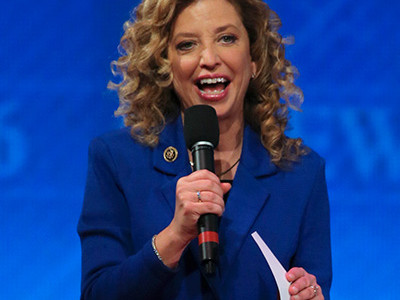The Department of Education is rewriting federal government rules directed at protecting pupils who attended profession planning programs at for-profit universities but did not make projected incomes or advertised these people were misled by schools. Under a guideline that has been scheduled to simply simply take impact final July, defrauded customers might have expected the government that is federal forgive their loans. Another legislation, partly in place, denies university programs federal money if graduates do not earn adequate to help by themselves and repay their loans.
The Institute for university Access and triumph states the noticeable modifications would allow it to be easier “to defraud pupils and evade accountability.” But Education Secretary Betsy DeVos states the principles went too much and caused it to be too simple for pupils to evade debt payment.
Legal actions by bank and credit-card clients
A guideline passed away by the customer Financial Protection Bureau (CFPB) and set to take impact spring that is next have permitted clients of banking institutions, credit-card businesses as well as others to become listed on in class-action legal actions. Currently, numerous firms that are financial customers to solve any disagreements through arbitration.
Customer advocates state clients deserve to possess their time in court. They cite the cyberbreach at credit history agency Equifax as well as the scandal over unauthorized reports at Wells Fargo as examples that justified challenges that are class-action. However the monetary industry states customers typically winnings larger payouts through arbitration than through class-action suits, which, they argue, mostly advantage solicitors. Typical relief for customers in arbitration situations ended up being $5,389 when compared with $32.35 in course action settlements, relating to a CFPB study of disputes that have been solved between 2010 and 2012. Nonetheless, customers got relief in only 9% of arbitration instances when compared with about 25per cent of class-action suits that reached settlements.
Safeguards for investors
A work Department regulation needed economic advisers to place their clients’ best interest in front of their very own whenever suggesting opportunities for your your your retirement records, and also to reveal disputes. Even though the requirements took effect in June, enforcement effortlessly had been delayed from very very early 2018 to July 2019 while Trump’s Labor officials seek more input that is public.
Defenses for low-income borrowers
The customer Financial Protection Bureau said this week it’s going to reconsider a guideline that needed payday loan providers to figure out if borrowers are able to settle loans before approving them. The rule, set to simply just simply take impact  in 2019, also would curtail repeated attempts by lenders to debit payments from a borrower’s bank account august.
in 2019, also would curtail repeated attempts by lenders to debit payments from a borrower’s bank account august.
CFPB officials say the legislation will fix an operational system that is rigged against borrowers. Pay day loans, which carry yearly interest levels of 300% or higher, are usually for as much as $500 and they are due in complete by the borrower’s next paycheck. Numerous borrowers repeatedly roll over or refinance the loans, incurring costly charges that are new time.
But several thousand payday lenders had been likely to shut as a consequence of the constraints, therefore the industry states it could take off a credit that is vital for economically strapped customers.
Overtime pay
The federal government passed a guideline that will are making an predicted 4.2 million more employees entitled to overtime pay. It raised the limit of which professional, administrative and employees that are professional exempt from overtime to $47,476 from $23,660. A federal judge hit along the legislation year that is last. The Trump management is appealing the ruling, but work Secretary Alexander Acosta has suggested it went too much,and he can seek a far more increase that is modest the threshold, making less employees eligible.
Restaurant tips
The Trump work Department has proposed a guideline that could enable restaurants to share with you waiters’ guidelines with workers such as for example chefs and dishwashers. But absolutely absolutely nothing into the proposed rule would avoid restaurants from maintaining the recommendations on their own, Shierholz states. An Obama-era guideline had clarified that waiters are able to keep their guidelines.
“In all these situations, it is about wresting leverage from workers and moving it to employers,” states Heidi Shierholz, senior economist in the left-leaning Economic Policy Institute.
